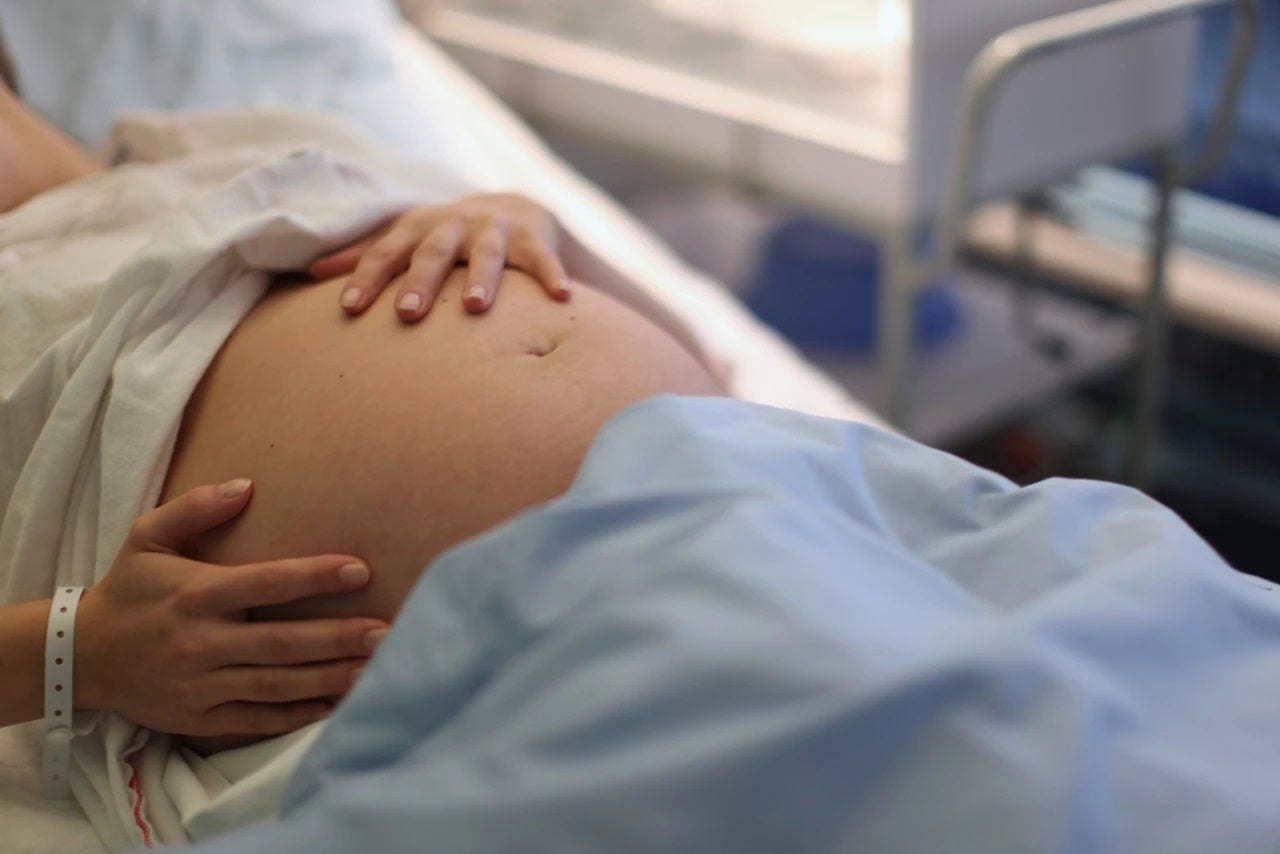During the 90 hours after fertilisation, cells divide and subdivide into a tiny mass.
Baby development at 1-4 weeks
How big is my baby at 1-4 weeks pregnant?
At this stage, there’s not much to see. Your newly-fertilised egg is called a zygote1. 90 hours after fertilisation, cells divide and subdivide into a tiny mass that will travel from your fallopian tubes to your uterus. After four weeks, your baby will be the size of a poppy seed and will be protected by an amniotic sac. This is filled with cushioning fluid, and attached to a tiny yolk sac that provides your baby with nourishment. The outer layer will develop into the placenta, providing your baby with oxygen and nutrients2.
Did you know?
Around 6-10 days after ovulation you may notice some light spotting as the bundle of cells, now known as a blastocyst, attaches to the wall of your womb1.
The first signs of pregnancy
Body changes in early pregnancy
It’s unlikely you’ll look pregnant: most first-time mums don’t start showing until at least week 12. It’s unlikely you’ll feel pregnant, too, but that will change when the ‘pregnancy hormone’ - human chorionic gonadotrophin2 - becomes active. That said, you’re starting to grow a brand new organ - the placenta.
By week 4 of pregnancy, your baby will get their nourishment from a tiny yolk sac, but this will be replaced by the placenta2. This brand new organ will supply your baby with oxygen and nutrients needed to grow and develop. It also passes antibodies to your baby, for resistance to infection throughout pregnancy3.
Another function of the placenta is hormone production3. These hormones help your baby grow and develop while supporting your own physical changes. Progesterone and relaxin, for example, both have a relaxant effect on your muscles, allowing your uterus to adapt and make room for your growing baby4.

Early Symptoms of Pregnancy at 1-4 Weeks
Early pregnancy symptoms5 can be subtle, and are sometimes missed. That said, it’s possible you may experience some of the following:
- A missed period
- A need to wee more frequently
- A metallic taste in your mouth
- Changing tastes in food
- Morning sickness
- A milky white discharge from your vagina (perfectly normal)
- Deans A. Your New Pregnancy Bible, The experts’ guide to pregnancy and early parenthood. 4th ed.London: Carroll & Brown Publishers Limited, 2013. p.14.
- NHS. Start 4 Life. 1st trimester, week 4 [Online]. Available at: https://www.nhs.uk/start4life/pregnancy/week-by-week/1st-trimester/week-4/ .
- NHS. What is the placenta? [Online]. Available at: https://www.nhs.uk/common-health-questions/pregnancy/what-is-the-placenta/ Page last reviewed: 3 September 2018.Next review due: 3 September 2021.
- You and your hormones, Placenta [Online]. Available at: https://www.yourhormones.info/glands/placenta/ Page last reviewed: February 2018.
Last reviewed: 13th May 2022
Reviewed by Nutricia’s Medical and Scientific Affairs Team
Related articles
Pregnancy topics
Any more questions?
Our specialist baby advisors and experienced mums are here to talk and ready to help whenever you need them.
Ask us a question (8am - 8pm Mon-Fri, 10am - 5pm Weekends)
Email us
Send us an email (8am-8pm Mon-Fri, 10am-5pm Sat)
Call Us
Call us on 1800 570 570 (8am-8pm Mon-Fri, 10-5pm Sat)
FAQs
For all the latest information














